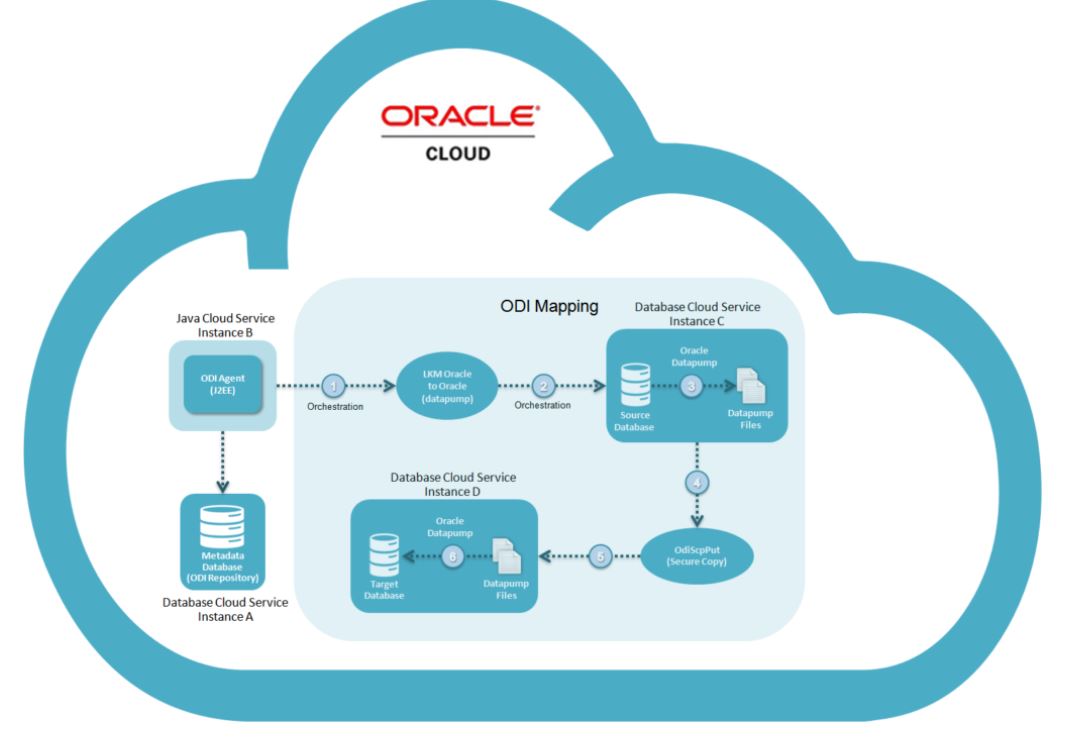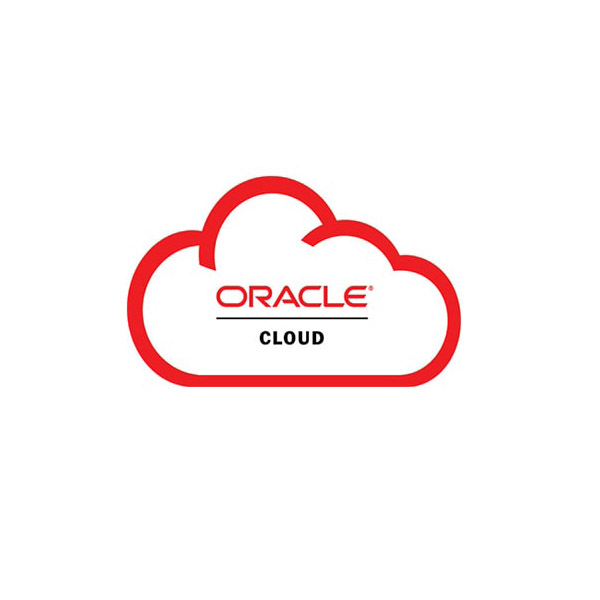What is Oracle Cloud?
Oracle Cloud is a comprehensive cloud computing platform that offers a wide range of services to businesses and organizations. It provides Infrastructure as a Service (IaaS), Platform as a Service (PaaS), Software as a Service (SaaS), and Data as a Service (DaaS) to help companies streamline their operations, reduce costs, and improve efficiency. Oracle Cloud’s main features include on-demand computing resources, scalability, security, and automation. These services can benefit businesses and organizations by enabling them to focus on their core operations while leaving the management of their IT infrastructure to Oracle.
How to Migrate to Oracle Cloud?
Migrating to Oracle Cloud can be a complex process, but with proper planning and execution, it can be done smoothly and efficiently. Here are the steps involved in migrating to Oracle Cloud:
- Assessment: The first step is to assess the current IT infrastructure and applications to determine the feasibility of migration. This includes evaluating the existing hardware, software, and network configurations, as well as identifying the applications and data that need to be migrated.
- Planning: Once the assessment is complete, the next step is to create a detailed migration plan. This includes identifying the target Oracle Cloud environment, determining the migration strategy, and setting a timeline for the migration.
- Migration: The actual migration process involves moving the applications and data from the existing infrastructure to Oracle Cloud. This can be done using various migration tools and techniques, such as lift-and-shift, re-hosting, re-platforming, or re-architecting.
- Testing: After the migration is complete, it is important to thoroughly test the applications and data to ensure that they are functioning correctly. This includes testing the performance, scalability, and security of the applications, as well as verifying the data integrity and consistency.
To ensure a successful migration, here are some tips and best practices:
- Choose the right migration strategy based on the specific needs and requirements of the business and applications.
- Use automated tools and processes to minimize the risk of errors and downtime.
- Test the migration in a staging environment before deploying it to production.
- Monitor the migration process closely and address any issues or bottlenecks promptly.
- Provide adequate training and support to the users and administrators to ensure a smooth transition.
Oracle Cloud vs. Competitors
When it comes to cloud computing, Oracle Cloud is one of the leading players in the market, competing with other major cloud providers such as Amazon Web Services (AWS) and Microsoft Azure. Here’s how Oracle Cloud compares to its competitors in terms of features, pricing, and performance:
Features
Oracle Cloud offers a wide range of services, including Infrastructure as a Service (IaaS), Platform as a Service (PaaS), Software as a Service (SaaS), and Data as a Service (DaaS). These services enable businesses and organizations to build, deploy, and manage applications and workloads in the cloud, with features such as automated provisioning, load balancing, and scaling. Oracle Cloud also provides advanced capabilities such as artificial intelligence (AI), machine learning, and blockchain, which can help businesses stay competitive and innovative.
Pricing
Oracle Cloud offers flexible pricing options, including pay-as-you-go, reserved instances, and bring-your-own-license. These options allow businesses and organizations to choose the pricing model that best fits their needs and budget. Oracle Cloud also provides tools and resources to help customers optimize their costs and avoid unexpected charges. Compared to its competitors, Oracle Cloud offers competitive pricing for its services, with discounts and promotions available for long-term commitments and strategic partnerships.
Performance
Oracle Cloud is designed for high performance and reliability, with features such as low-latency networking, fast storage, and robust security. Oracle Cloud also provides SLAs (Service Level Agreements) for its services, guaranteeing uptime and availability. In terms of performance, Oracle Cloud is on par with its competitors, providing fast and reliable services for businesses and organizations of all sizes.
Unique Selling Points and Differentiators
Oracle Cloud has several unique selling points and differentiators that set it apart from its competitors. For example, Oracle Cloud provides a seamless integration with on-premises infrastructure, enabling businesses and organizations to extend their data centers to the cloud. Oracle Cloud also provides a unified platform for managing all workloads and applications, with a single pane of glass for monitoring and managing the entire infrastructure. Additionally, Oracle Cloud offers a wide range of tools and resources for developers, including SDKs, APIs, and DevOps tools, enabling them to build, test, and deploy applications quickly and easily.
Oracle Cloud Security
Security is a top priority for businesses and organizations when it comes to cloud computing. Oracle Cloud understands the importance of security and provides robust security measures to protect customer data and applications. Here are some of the key security features of Oracle Cloud:
Identity and Access Management
Oracle Cloud provides a unified identity and access management system that enables businesses and organizations to manage user identities, access policies, and authentication across all cloud services. Oracle Cloud supports various authentication methods, including multi-factor authentication, social login, and single sign-on. Oracle Cloud also provides role-based access control, enabling businesses and organizations to define and manage user roles and permissions.
Data Encryption
Oracle Cloud provides data encryption for data at rest and in transit. Oracle Cloud supports various encryption algorithms, including AES and RSA. Oracle Cloud also provides key management services, enabling businesses and organizations to manage encryption keys and policies. Oracle Cloud supports encryption for various data types, including structured and unstructured data, and provides encryption for data in storage, backup, and archive.
Network Security
Oracle Cloud provides network security features, including firewalls, VPNs, and network segmentation. Oracle Cloud supports various network security protocols, including TCP/IP, UDP, and ICMP. Oracle Cloud also provides DDoS protection and mitigation services, enabling businesses and organizations to protect their applications and data from DDoS attacks. Oracle Cloud supports virtual private clouds, enabling businesses and organizations to create isolated network environments for their applications and data.
Compliance
Oracle Cloud ensures compliance with various regulations and standards, including SOC 1, SOC 2, PCI DSS, HIPAA, and GDPR. Oracle Cloud provides compliance reports and attestations, enabling businesses and organizations to demonstrate compliance to auditors and regulators. Oracle Cloud also provides tools and resources for businesses and organizations to conduct their own security assessments and audits.
Best Practices for Oracle Cloud Security
Here are some best practices for securing Oracle Cloud:
- Use strong passwords and multi-factor authentication for user accounts.
- Limit user access to the minimum necessary permissions.
- Encrypt sensitive data at rest and in transit.
- Use firewalls and VPNs to secure network traffic.
- Regularly review security logs and alerts.
- Conduct security assessments and audits regularly.
Oracle Cloud Use Cases
Oracle Cloud offers a wide range of services and solutions that can benefit businesses and organizations of all sizes and industries. Here are some examples of how businesses and organizations can use Oracle Cloud for various purposes:
Application Development
Oracle Cloud provides a platform for developing, testing, and deploying applications in the cloud. Oracle Cloud supports various programming languages, frameworks, and tools, enabling developers to build applications quickly and easily. Oracle Cloud also provides DevOps services, enabling businesses and organizations to automate the software development lifecycle and deliver applications faster.
Data Analytics
Oracle Cloud provides a platform for data analytics and business intelligence. Oracle Cloud supports various data sources, including structured and unstructured data, and provides tools for data integration, data transformation, and data visualization. Oracle Cloud also provides machine learning and artificial intelligence services, enabling businesses and organizations to gain insights from their data and make data-driven decisions.
Artificial Intelligence (AI)
Oracle Cloud provides a platform for developing and deploying AI and machine learning models. Oracle Cloud supports various AI and machine learning frameworks, including TensorFlow, Keras, and PyTorch, and provides tools for data preparation, model training, and model deployment. Oracle Cloud also provides chatbot and voice assistant services, enabling businesses and organizations to build conversational interfaces and automate customer interactions.
Customer Experience (CX)
Oracle Cloud provides a platform for customer experience management. Oracle Cloud supports various CX applications, including marketing, sales, service, and commerce, and provides tools for customer data management, customer segmentation, and customer engagement. Oracle Cloud also provides AI and machine learning services, enabling businesses and organizations to personalize customer experiences and improve customer satisfaction.
Success Stories and Customer Testimonials
Many businesses and organizations have successfully used Oracle Cloud for various purposes. For example, GE Appliances used Oracle Cloud to modernize its IT infrastructure and reduce costs. The City of Atlanta used Oracle Cloud to improve its citizen services and enhance its cybersecurity. McDonald’s used Oracle Cloud to streamline its supply chain and optimize its operations. These success stories and customer testimonials demonstrate the value and benefits of using Oracle Cloud for businesses and organizations.
Oracle Cloud Pricing and Packaging
Oracle Cloud offers a variety of pricing and packaging options to meet the needs of businesses and organizations of all sizes. Here are some of the key pricing and packaging options for Oracle Cloud:
Pay-as-you-go
Oracle Cloud’s pay-as-you-go pricing option allows businesses and organizations to pay only for the resources they use. This pricing option provides flexibility and scalability, enabling businesses and organizations to adjust their usage based on their needs. Pay-as-you-go pricing is ideal for businesses and organizations that have variable workloads or need to scale up or down quickly.
Reserved Instances
Oracle Cloud’s reserved instances pricing option allows businesses and organizations to reserve compute resources for a fixed term, such as one year or three years. This pricing option provides cost savings and predictability, enabling businesses and organizations to plan their usage and budget accordingly. Reserved instances are ideal for businesses and organizations that have predictable workloads or need to reserve resources for a specific project.
Bring-Your-Own-License
Oracle Cloud’s bring-your-own-license (BYOL) pricing option allows businesses and organizations to use their existing Oracle software licenses in the cloud. This pricing option provides cost savings and flexibility, enabling businesses and organizations to leverage their existing investments and avoid vendor lock-in. BYOL is ideal for businesses and organizations that have existing Oracle software licenses and want to move to the cloud.
Tips for Optimizing Costs and Avoiding Unexpected Charges
- Monitor usage regularly and adjust usage based on needs.
- Use cost-estimation tools to estimate costs before deploying resources.
- Set up alerts and notifications for usage and costs.
- Use resource tags to track and manage resources and costs.
- Consider using reserved instances or BYOL for predictable workloads or long-term projects.
Conclusion
Oracle Cloud offers a variety of pricing and packaging options to meet the needs of businesses and organizations of all sizes. By understanding the different pricing and packaging options, businesses and organizations can optimize their costs and avoid unexpected charges. Whether businesses and organizations need flexibility and scalability, cost savings and predictability, or leveraging existing investments, Oracle Cloud has a pricing and packaging option that fits their needs.
Oracle Cloud Training and Support
Oracle Cloud offers a wide range of training and support options to help businesses and organizations get the most out of their cloud investment. Here are some of the key training and support offerings from Oracle Cloud:
Documentation
Oracle Cloud provides extensive documentation and user guides for all of its services and products. The documentation includes step-by-step instructions, best practices, and troubleshooting tips. The documentation is available online and can be accessed from the Oracle Cloud website.
Tutorials
Oracle Cloud offers a variety of tutorials and hands-on labs to help businesses and organizations learn how to use Oracle Cloud. The tutorials cover a wide range of topics, including application development, data analytics, and artificial intelligence. The tutorials are available online and can be accessed from the Oracle Cloud website.
Certification Programs
Oracle Cloud offers a variety of certification programs to help businesses and organizations validate their skills and knowledge. The certification programs cover a wide range of topics, including infrastructure as a service, platform as a service, and software as a service. The certification programs are available online and can be accessed from the Oracle Cloud website.
Customer Support
Oracle Cloud offers a variety of customer support options to help businesses and organizations get help and assistance when needed. The customer support options include online support, phone support, and email support. The customer support is available 24/7 and is provided by Oracle Cloud experts.
Tips for Getting Help and Assistance
- Use the documentation and tutorials as a first point of reference.
- Join the Oracle Cloud community and ask questions and get help from other users.
- Contact Oracle Cloud support for urgent or complex issues.
- Consider getting certified to validate your skills and knowledge.
Conclusion
Oracle Cloud offers a wide range of training and support options to help businesses and organizations get the most out of their cloud investment. By leveraging the training and support offerings, businesses and organizations can ensure that they are using Oracle Cloud effectively and efficiently. Whether businesses and organizations need documentation, tutorials, certification programs, or customer support, Oracle Cloud has a training and support option that fits their needs.
Oracle Cloud Future Trends
Oracle Cloud is constantly evolving and innovating to meet the changing needs of businesses and organizations. Here are some of the future trends and developments that businesses and organizations can expect from Oracle Cloud:
Automation
Oracle Cloud is investing heavily in automation to help businesses and organizations automate their operations and processes. With automation, businesses and organizations can reduce costs, improve efficiency, and increase agility. Oracle Cloud offers a variety of automation tools and services, including chatbots, virtual assistants, and robotic process automation (RPA).
Machine Learning
Oracle Cloud is also investing in machine learning to help businesses and organizations make better decisions and predictions. With machine learning, businesses and organizations can analyze data, identify patterns, and make recommendations. Oracle Cloud offers a variety of machine learning tools and services, including data mining, predictive analytics, and natural language processing (NLP).
Blockchain
Oracle Cloud is also exploring the use of blockchain technology to help businesses and organizations secure their transactions and data. With blockchain, businesses and organizations can create a secure and transparent record of their transactions. Oracle Cloud offers a variety of blockchain tools and services, including smart contracts, distributed ledgers, and consensus algorithms.
Benefits of Oracle Cloud Future Trends
- Automation can help businesses and organizations reduce costs, improve efficiency, and increase agility.
- Machine learning can help businesses and organizations make better decisions and predictions.
- Blockchain can help businesses and organizations secure their transactions and data.
Conclusion
Oracle Cloud is constantly evolving and innovating to meet the changing needs of businesses and organizations. By leveraging the future trends and developments of Oracle Cloud, businesses and organizations can stay competitive and innovative in the ever-changing technology landscape. Whether businesses and organizations need automation, machine learning, or blockchain, Oracle Cloud has a solution that fits their needs.







